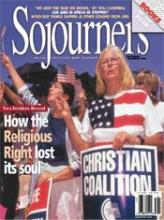The Supreme Court has accepted another case involving public aid to private schools. It will be the latest in a string of such cases that have left what an appeals court judge recently called a "vast, perplexing desert." And as usual in such cases, two issues become intertwined. One is the appropriate relationship between church and state, the other the quality of education in this country. Is the real issue at stake here further exegesis of the First Amendment, or is it our education system and the best way to improve it?
In the past year, a number of school-related cases have been moving through the courts, with contradictory results. The Wisconsin and Ohio state Supreme Courts have upheld voucher programs that include religious schools, while the Maine Supreme Court and the federal First Circuit Court of Appeals have ruled that tax funds cannot go to religious schools. A voucher plan has passed the legislature in Florida and failed in Texas. And in September a federal district judge in Cleveland issued a preliminary ruling that a voucher program "had no substantial possibility" of being upheld.
In the case taken by the Supreme Court, the federal Fifth Circuit Court ruled in a case from Louisiana that a federal program designed to provide funds for computers, audio-visual equipment, and library books to schools in low-income areas could not include religious schools. It also ruled that a program designed to provide special education teachers, including in religious schools, is constitutional. The distinction appears to be whether public funds go directly to religious schools.
The Supreme Court has been moving from a strict separation philosophy to one of neutrality, that the law should treat religious and non-religious entities equally. This current case will be closely watched to see how far the Court will extend that theory.
Read the Full Article
